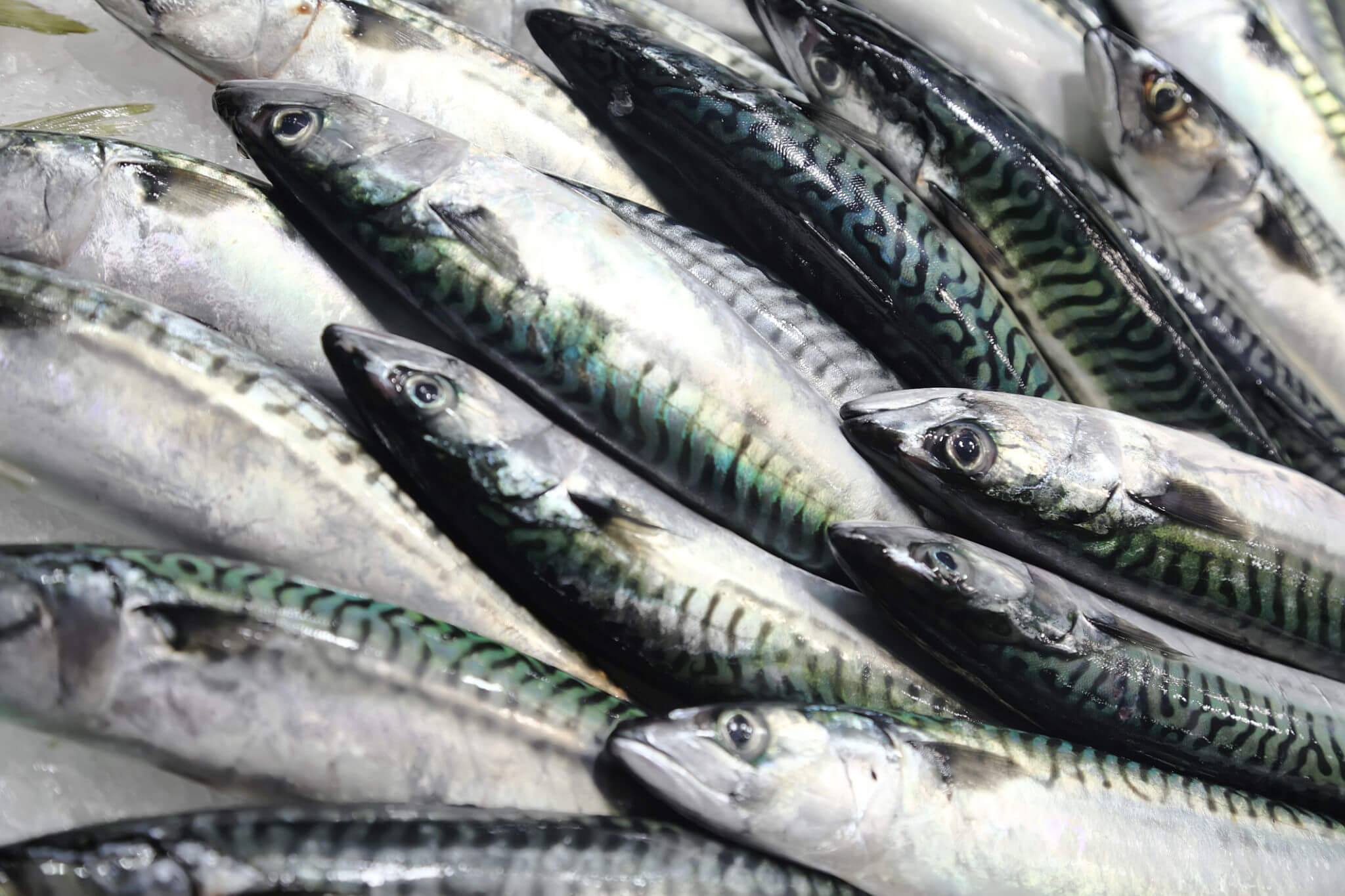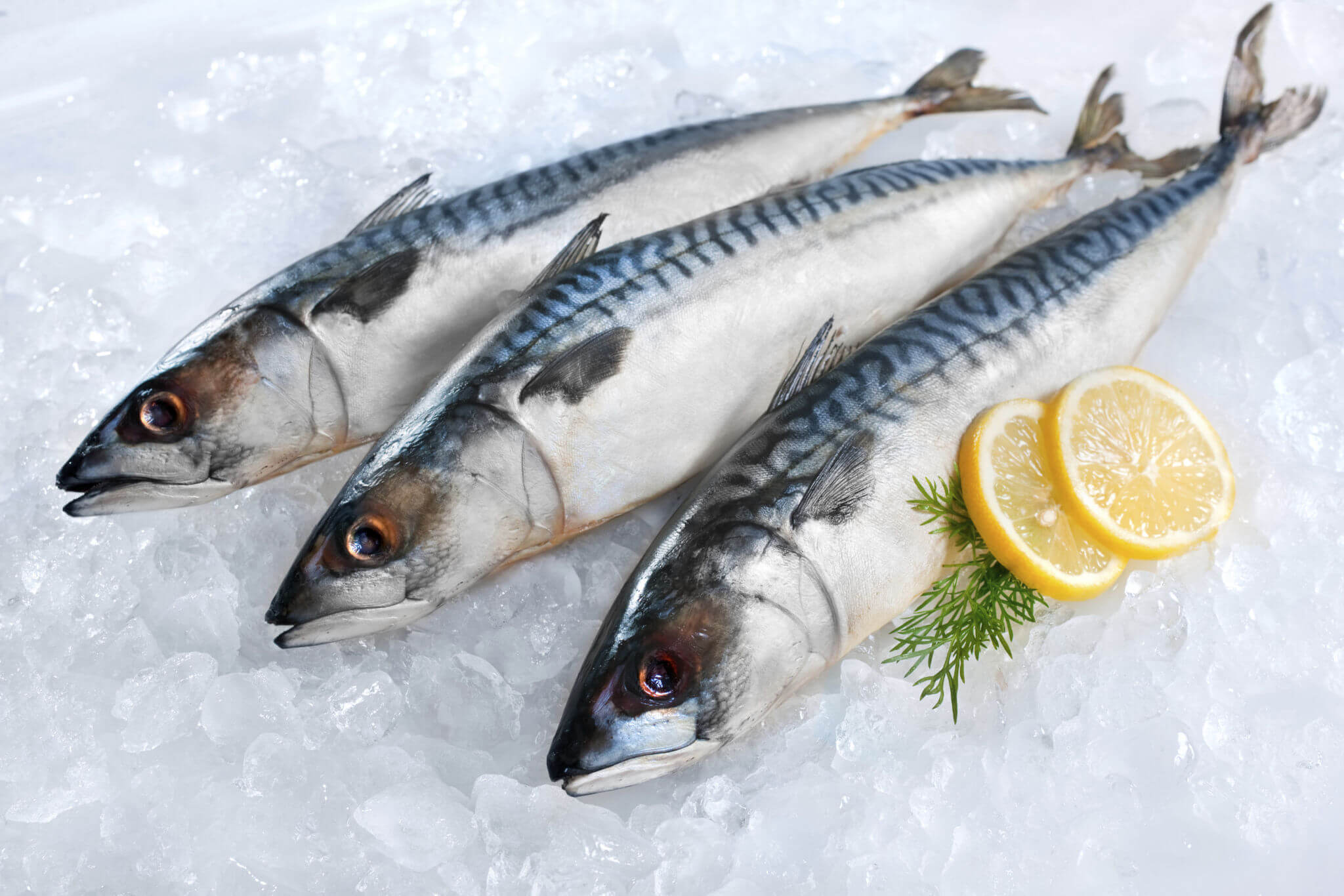
Mackerel fish are a fascinating and diverse group of species found in oceans worldwide, known for their sleek bodies and vibrant coloration. This overview will introduce you to the various types of mackerel fish and help you understand their significance in both ecological and culinary contexts.
Mackerel are part of the Scombridae family, which includes several varieties that differ in size, habitat, and appearance. Some of the most well-known types include the Atlantic mackerel (Scomber scombrus), Spanish mackerel (Scomberomorus maculatus), and King mackerel (Scomberomorus cavalla). Each variety has unique characteristics that make them suitable for different environments and uses.
Atlantic mackerel, often found in the North Atlantic Ocean, are smaller but prized for their rich flavor. They play a crucial role in marine ecosystems as both predators and prey. Spanish mackerel are typically larger with distinctive spots along their sides, commonly found along the southeastern coast of the United States. King mackerels are known for their impressive size and speed, making them popular among sport fishermen.
Understanding these varieties is essential not only for appreciating their role in marine biodiversity but also for making informed choices when it comes to culinary uses. Mackerels are celebrated for their high omega-3 fatty acid content, offering numerous health benefits when included as part of a balanced diet.
Nutritional Profile of Mackerel Fish
Mackerel fish is a nutritional powerhouse that offers a variety of health benefits, making it an excellent addition to a balanced diet. One of the most notable aspects of mackerel nutrition facts is its high protein content, which is essential for muscle growth and repair. A typical serving provides around 20 grams of protein, making it an ideal choice for those looking to meet their daily protein requirements.
In addition to being rich in protein, mackerel is also packed with essential vitamins. It contains significant amounts of vitamin D, which plays a crucial role in bone health and immune function. The fish is also a good source of B vitamins, including B12 and niacin, which are important for energy production and maintaining healthy nerve function.
Perhaps one of the most celebrated nutritional benefits of mackerel is its high concentration of omega-3 fatty acids. These healthy fats are known for their role in reducing inflammation, supporting heart health, and improving brain function. Regular consumption of omega-3 fatty acids from sources like mackerel can contribute to overall well-being and may help lower the risk of chronic diseases.
Incorporating mackerel into your diet can provide numerous health benefits due to its impressive profile rich in proteins, essential vitamins such as vitamin D and B12, as well as beneficial omega-3 fatty acids. Whether grilled or baked, this versatile fish can be enjoyed in various dishes while boosting your nutritional intake significantly.
Health Benefits of Consuming Mackerel

Mackerel, a nutrient-dense fish, is packed with numerous health benefits that make it an excellent addition to your diet. One of the primary benefits of eating mackerel is its positive impact on heart health. Rich in omega-3 fatty acids, mackerel helps reduce inflammation and lowers the risk of heart disease by decreasing triglyceride levels and improving cholesterol ratios. These heart health benefits of fish are well-documented, making mackerel a wise choice for cardiovascular support.
In addition to supporting heart health, mackerel also plays a crucial role in enhancing brain function. The omega-3s found in this fish are essential for maintaining cognitive function and may help protect against age-related cognitive decline. Consuming mackerel regularly can contribute to improved memory and overall brain performance.
Furthermore, the nutritional advantages of fish oil derived from mackerel extend beyond just the heart and brain. It provides essential vitamins such as vitamin D and B12, which are vital for bone health and energy production. Mackerel is also an excellent source of protein, aiding in muscle repair and growth.
Incorporating mackerel into your diet can be a simple yet effective way to harness these nutritional benefits while enjoying its delicious taste. Whether grilled, smoked, or added to salads, this versatile fish offers a myriad of ways to boost your overall health naturally.
Potential Risks and Considerations with Mackerel Consumption
Mackerel is a popular choice among seafood enthusiasts due to its rich flavor and nutritional benefits, but there are several potential risks and considerations to keep in mind when incorporating it into your diet. One of the primary concerns is the mercury levels in fish. Mackerel, like many other predatory fish, can accumulate mercury in its tissues, which poses health risks if consumed in large amounts over time. It’s important to adhere to safe consumption levels of mackerel, especially for vulnerable groups such as pregnant women and young children.
In addition to mercury concerns, some individuals may experience allergic reactions to seafood, including mackerel. These reactions can range from mild symptoms like hives or digestive issues to more severe responses such as anaphylaxis. If you have a known seafood allergy or suspect you might be sensitive, it’s advisable to consult with a healthcare professional before adding mackerel to your diet.
Sustainability issues with fishing practices also play a critical role when considering mackerel consumption. Overfishing and unsustainable practices can lead to depleted fish populations and disrupted marine ecosystems. To mitigate these impacts, consumers should look for mackerel sourced from fisheries that adhere to sustainable practices certified by reputable organizations.
Mouthwatering Recipes and Cooking Tips for Mackerel Fish Lovers
Mackerel is a versatile and flavorful fish that offers a multitude of cooking possibilities, making it a favorite among seafood enthusiasts. Understanding the best ways to cook mackerel can elevate your culinary experience and bring out the best in this nutritious fish.
When it comes to preparing mackerel, three popular methods stand out: grilling, baking, and smoking. Each technique offers its own unique flavor profile and texture. Grilled mackerel is known for its crispy skin and smoky aroma, achieved by cooking over an open flame or on a grill pan. This method enhances the natural oils of the fish, resulting in a rich taste that pairs well with citrus-based marinades or herb-infused rubs.
Baking mackerel is another excellent option for those who prefer a more subtle flavor. Baking allows the fish to retain moisture while absorbing flavors from accompanying ingredients such as garlic, lemon slices, or fresh herbs. This method is particularly convenient as it requires minimal preparation time and ensures even cooking throughout.
For those who enjoy intense flavors, smoked mackerel is an irresistible choice. Smoking infuses the fish with deep savory notes while preserving its tender texture. Whether you opt for hot smoking or cold smoking techniques, smoked mackerel can be enjoyed on its own or incorporated into various dishes like salads or pâtés.
Exploring delicious mackerel recipes can further enhance your culinary repertoire. Consider trying grilled mackerel with a zesty chimichurri sauce for an exciting twist on traditional flavors, or bake it with Mediterranean vegetables for a wholesome meal that’s both satisfying and nutritious.
How to Choose the Right Source for Your Mackerel Fish
When it comes to making sustainable choices in seafood, mackerel is a popular option due to its high nutritional value and relatively low environmental impact compared to other fish. However, ensuring that your mackerel is sourced sustainably requires careful consideration of several factors.
First and foremost, understanding sustainable fishing practices for mackerel is key. These practices include methods like pole-and-line or handline fishing, which are less damaging to marine ecosystems than large-scale trawling. By choosing mackerel caught using these techniques, you support fisheries that prioritize the health of ocean habitats.
Ethical seafood purchasing tips can also guide you in making informed decisions. Look for certifications from reputable organizations such as the Marine Stewardship Council (MSC), which ensures that fish are harvested sustainably and responsibly. Additionally, consider buying from local fisheries where possible; this not only supports community-based fishermen but also reduces the carbon footprint associated with transporting seafood over long distances.
The environmental impact of overfishing cannot be understated. Overfished stocks lead to imbalances in marine ecosystems and can cause significant harm to biodiversity. By opting for sustainably sourced mackerel, you contribute to preserving ocean life for future generations while enjoying a delicious and healthy meal.
In summary, choosing the right source for your mackerel involves being mindful of how it’s caught and where it comes from. By prioritizing sustainability in your purchasing decisions, you play an essential role in promoting ethical seafood consumption and protecting our planet’s precious marine resources.



